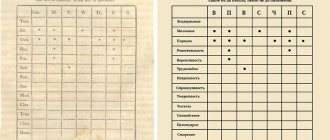As a rule, not a single time management seminar is complete without a brief description of one of the most famous, oldest and most effective time management techniques - the Franklin pyramid (in English the form “productivity pyramid” is sometimes used). References to this methodology and the use of some of its postulates can be found in many successful business trainers - Stephen Covey, Ken Krogh, Joel Weldon, Denis Whately. It has also gained popularity among many Western directors, managers, and managers at various levels.
But Franklin's pyramid is something more universal than time management. This is a comprehensive system for setting and achieving goals that lasts a lifetime. The difference between the Franklin pyramid and other methods is that it plans not only time, but also employment, ways to achieve a global goal. This technique is “future-oriented”—to identify what needs to be done, rather than to review current activities in order to organize them more efficiently.
Benjamin Franklin
Benjamin Franklin (1706-1790) - politician, diplomat, scientist, inventor, journalist, businessman, one of the Founding Fathers of the United States and the authors of the Constitution. The first American to become a foreign member of the Russian Academy of Sciences. He was a very influential politician, despite the fact that he was never president of the United States. His biographer even joked about this once: “Benjamin Franklin is the only president of the United States of America who has never been one.” Franklin's portrait has been seen by everyone who has ever held a $100 bill in their hands. He is the author of the now catchphrase: “Time is money.”
Ben Franklin was sure that control over the events of our lives brings peace of mind to a person. He studied all his life and paid a lot of attention to self-development and education. His activities required a lot of time and the answer to this need was a self-developed system that he followed throughout his life. He wrote it at the age of 20 and since then has tirelessly followed its principles, despite the circumstances that arise.
How effective is Franklin's pyramid? We can judge this by at least the example of his life. The 15th of 17 children in the family, the son of an ordinary soap maker, who graduated from several classes of a rural school and worked from the age of 10, B. Franklin, thanks to his hard work, achieved recognition in several fields simultaneously and forever inscribed his name in the history of mankind. Dale Carnegie once said, “If you want excellent advice on how to deal with people, manage yourself, and improve your personal qualities, read the autobiography of Benjamin Franklin—one of life's most fascinating stories.”
Franklin's Pyramid. Fans of various statistical studies in the West have found that only 1% of people can say exactly what they want to achieve in life. B. Franklin knew this for sure - he was distinguished by his efficiency and determination. Even in his youth, he made a plan and tried to carry it out. The essence was the following: the global task was divided into smaller ones, and those, in turn, into subtasks. This is Franklin's pyramid idea.
How to use?
After studying each point, perhaps someone considered this pyramid of achievements too complex and confusing. Don’t be scared; once you start using it, you will get used to it over time and begin to better understand the intricacies of this system.
For example, having figured out what exactly you want to achieve, every morning or evening, whichever is more convenient, sit down to fill out your diary. That is, prescribe even the smallest tasks for the day.
It is important to maintain discipline and pay attention to each point, reviewing them periodically. Because some dreams may lose relevance. And it would be useful to replan your activities in order to realize your needs, and not, on the contrary, create frustration for them.
In the West, this Franklin system is so popular that diaries are available for sale, with pages lined up directly for each stage. Although, it is quite possible to draw a notebook yourself. To make it easier to navigate exactly how to do this, you can read the article on how to set goals correctly. It is located at this link.
Life values
Life values are the foundation on which everyone builds their life. Their belonging to the spiritual leads to the fact that in the modern world many people do not pay due attention to the identification of values. Material things prevail, everyone wants to earn a lot of money, drive expensive cars, but cannot give a complete answer to the question of exactly how much money they need. This attitude is not bad, but rather wrong. Be honest with yourself. Security and money are normal values; if it brings you satisfaction, then why not dedicate your life to it? For this, you may have to sacrifice other values, so it is important to be confident in your choice. And this applies not only to the above example, but also to other meanings of life - the desire to benefit people, to have power, to be famous, to devote oneself to family. You can choose several areas, the main thing is that it should be what you really want to do and what you are ready to devote your life to, something that will make you happy and help you realize yourself.
B. Franklin describes his life values and plan for achieving them in his autobiography. For him, values were those simple truths that he learned from Quakers in his youth. Based on their cultivation, he built his career and always tried to adhere to the proclaimed principles (according to his contemporaries, this did not always work out with order):
Abstinence.
Do not eat to the point of satiety, do not drink to the point of intoxication.
Silence.
Say only what will benefit me or other people, avoid empty talk.
Order.
Every thing has its place, and every business has its time.
Determination.
Decide to do what needs to be done; strictly carry out what is decided.
Thrift.
Spend money only on things that benefit me or others; don't waste anything.
Hard work.
Don't waste time; be always busy with something useful, avoid unnecessary actions.
Sincerity.
Do not use harmful deception; think honestly and fairly, adhere to the same rule in conversation.
Justice.
Do not harm anyone; do not act unjustly and do not avoid doing good deeds.
Moderation.
Avoid extremes; tolerate insults.
Purity.
Maintain bodily cleanliness, neatness in clothing and home.
Calm.
Don't worry about trifles or ordinary or unavoidable events.
Chastity.
Be chaste in thoughts, control your instincts.
Modesty.
Imitate Jesus and Socrates.
These values are more abstract than the power or fame exemplified by modern practitioners of the Franklin Pyramid technique. But that's not the main thing. The main thing is that they do not run counter to the global goal. If a person is vain and ambitious, he will not be able to work for a team result for long. Or he can, but he won’t be happy. Therefore, we repeat once again - define your values carefully and carefully.











